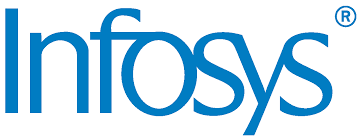
Is Zomato Stock Halal? Zomato Halal Investment Guide India
By Fardeen
•Yes, Zomato Ltd is considered an ethical, halal, and Shariah-compliant stock
Investing in the stock market can be a lucrative opportunity, but for those following Islamic principles, the decision to invest requires special attention to ensure the investments are Halal. This article explores whether Zomato stock is Halal, providing a comprehensive guide on Halal investments, detailed analysis of Zomato, and the considerations for Muslims looking to invest in India.
Understanding Halal Investment
Halal investments refer to investments that comply with Islamic law (Shariah). In essence, Halal investing prohibits investments in companies that engage in activities considered Haram (prohibited) such as alcohol, gambling, and interest-bearing finance. Understanding the principles and options available for Halal investments is crucial for Muslim investors.
What is Halal Investment?
Halal investment is an investment that doesn't violate any Islamic laws. Essentially, it excludes investments in businesses that engage in activities like alcohol, gambling, non-Halal food production, and earning interest.
Principles of Halal Investing
Halal investing is based on specific principles:
- Ethical business operations.
- Profit sharing and loss bearing.
- Prohibition of interest (Riba).
- Asset backing.
Benefits of Halal Investment
Halal investments offer several benefits including ethical and socially responsible investment choices, risk minimization, and community support through ethical profit-sharing models.
Common Halal Investment Options
Some common Halal investment options include:
- Real estate (without involving interest-based financing).
- Commodities such as gold and silver.
- Halal mutual funds.
- Shariah-compliant stocks.
Overview of Zomato as a Company
Zomato is a popular food delivery and restaurant aggregator based in India. Understanding its background, business model, market position, and financial performance is essential for assessing its Shariah compliance status. The company operates across multiple countries, offering a robust platform for discovering and ordering food. Investors looking to determine is Zomato stock halal need to delve into the types of revenue streams and ensure they align with Islamic laws. Additionally, analyzing Zomato's partnerships and their business practices will provide further clarity on its halal investment potential. Ensuring thorough research can guide potential investors in making an informed decision about Zomato's stock.
History and Background
Zomato was founded in 2008 by Deepinder Goyal and Pankaj Chaddah. It started as a simple restaurant review and discovery platform and quickly grew to become one of India's foremost food tech companies.
Zomato's Business Model
Zomato generates revenue through multiple avenues, including advertising, food delivery services, subscription plans, and various restaurant management solutions. Its primary goal is to connect restaurants with customers on a global scale.
Zomato's Market Position
Zomato is a dominant force in the Indian food delivery market, boasting a considerable international footprint that allows it to compete with global leaders such as Uber Eats and Swiggy.
Zomato's Financial Performance
Zomato's financial performance has seen significant growth over the years, marked by a successful IPO. Analyzing Zomato’s financials is crucial for assessing its feasibility as a Halal investment.
Is ZOMATO LTD Halal and Shariah Compliant?
Determining if Zomato stock is Halal involves examining its business activities, financial ratios, and seeking opinions from Islamic scholars. This ensures that the company's core operations do not involve haram elements such as alcohol, gambling, or interest-bearing transactions. Furthermore, analyzing the financial health and compliance with Shariah financial principles and guidelines is crucial for Muslim investors. Experts often look at debt ratios, interest income, and other economic metrics. The ultimate decision must involve scholarly input to validate the findings and ensure comprehensive compliance.
Is Zomato Halal Stock?
Zomato’s primary business activities in food delivery and restaurant services are generally considered permissible. However, a comprehensive Shariah audit is necessary to ensure full compliance.
Islamic Scholar Opinions
Islamic scholars have varying opinions on the permissibility of Zomato stock. It's essential to consult with knowledgeable scholars who specialize in Islamic finance to get a definitive answer.
Alternatives to Zomato Stock
Investors seeking Halal investment options might consider alternatives such as:
- Investing in Halal mutual funds.
- Shariah-compliant companies in other sectors.
- Commodity investments like gold and silver.
Criteria for Halal Stock
Key criteria to consider include:
- Business activities should not involve Haram elements.
- Compliance with financial ratios (e.g., debt to assets ratio).
- Income generated from permissible sources.
Analyzing Zomato Stock
Thorough analysis of Zomato’s stock is essential to understand its financial health, market trends, and potential growth prospects. Investors must also consider the company's revenue streams, debt levels, and overall business model to make an informed decision. Evaluating Zomato's competitive landscape will help gauge its market position and sustainability. Additionally, examining the company's compliance with Shariah law principles is crucial for those seeking halal investment opportunities. By understanding these components, potential investors can better assess whether Zomato stock aligns with their financial and ethical investment goals.
Recent Zomato Stock Analysis
Examining recent stock performance enables investors to grasp current market sentiments and anticipate potential future performance.
Key Financial Metrics
Key financial metrics to consider include:
- Revenue growth.
- Profit margins.
- Debt-to-equity ratio.
- Return on equity (ROE).
Market Trends and Growth Prospects
Understanding market trends and growth prospects is crucial for predicting Zomato’s future in the competitive landscape. Investors should track factors such as market share, industry growth rates, and competitive strategies.
Risk Factors to Consider
Potential risk factors include regulatory changes, market competition, operational challenges, and geopolitical factors.
Steps to Invest in Zomato Halal Stocks
Investing in Halal stocks like Zomato requires careful planning and adherence to Shariah principles. One must ensure the company's financial and business operations comply with Islamic laws. This includes examining factors like debt ratios and business revenue streams. Engaging with a certified Shariah advisor can provide valuable guidance to ensure the compliance of the investment. It's critical to stay informed about the latest financial performance and regulatory changes in the industry, as these can impact the Halal status of the stock. By maintaining a vigilant and informed approach, investors can make ethical and profitable decisions.
Identifying Halal Stocks
Investors should leverage Shariah screening tools and consult with Islamic finance experts to accurately identify Halal stocks.
Opening a Brokerage Account
Steps to open a brokerage account include:
- Researching brokerage firms.
- Ensuring the broker understands Halal investment requirements.
- Filling the account opening form with required documentation.
Finding Halal Investment Funds
Investors can explore a variety of Halal investment funds that provide diversified portfolios, all of which adhere strictly to Islamic principles.
Monitoring and Managing Investments
Regular monitoring and active management of investments are essential to ensure continued compliance with Halal principles and to optimize financial returns.
Advantages of Halal Investing in India
Halal investing in India offers numerous benefits, ensuring financial growth while adhering to ethical and religious principles. Investors gain peace of mind knowing their investments align with Shariah law, encouraging a healthier financial portfolio. Moreover, this investment strategy promotes socially responsible investing, which can often lead to more sustainable and ethical business practices. In the long run, halal investments can also contribute to the well-being of the larger community by avoiding industries that harm society. Ultimately, by engaging in halal investing, individuals can achieve their financial goals without compromising on their values and beliefs.
Financial Growth and Stability
Halal investments can provide stability and growth, as they are typically involved in ethically sound businesses with lower risk exposure.
Ethical Considerations
Investing in Halal stocks ensures that your investments contribute to ethical and socially responsible business practices.
Community Support and Development
Halal investments often support community development initiatives, enhancing the social and economic welfare of the community.
Tax Benefits and Incentives
In India, certain tax benefits and incentives may be available for Halal investment products, encouraging ethical investment practices.
Challenges in Halal Investment
Despite its benefits, Halal investment comes with challenges that investors should be aware of. Developing a comprehensive understanding of Shariah-compliant financial principles can be complex. Investors need to ensure that their investments do not involve prohibited industries such as alcohol, gambling, and pork products. Additionally, monitoring for appropriate debt-to-equity ratios is essential to maintain compliance. Furthermore, there may be limited availability of Halal investment options, which can affect diversification and potential returns.
Regulatory Issues
India's regulatory landscape may pose challenges for Halal investments, including compliance issues and legal barriers.
Lack of Awareness and Education
There is a significant need for increased awareness and education about Halal investment principles and options among the Muslim community.
Limited Investment Options
The availability of Halal investment products can be limited, requiring investors to carefully research and select compliant options.
Market Volatility
Like all investments, Halal investments are subject to market volatility, which can affect returns and financial stability.
Experts’ Opinion on Zomato Share Halal or Haram
The insights and analyses provided by scholars and market experts play a pivotal role in determining whether Zomato shares are considered Halal. Experts meticulously examine the company's financial practices, business operations, and income sources to ensure they comply with Shariah principles. Additionally, the consistent application of ethical guidelines and avoidance of interest-bearing transactions are key factors in this evaluation. Market analysts often provide detailed reports on the nature of Zomato's revenue streams, further clarifying its alignment with Halal investment principles. The collective assessments from these insights contribute significantly to Muslim investors' decision-making processes regarding the permissibility of investing in Zomato stocks.
Scholars’ Perspectives
Scholars specializing in Islamic finance can provide insights based on religious texts and principles, guiding investors in making informed decisions.
Financial Analysts' Views
Financial analysts can offer a detailed examination of Zomato’s financial position, ensuring that it meets the criteria for Halal investment.
Market Experts' Insights
Insights from market experts on industry trends, competitive positioning, and future growth prospects of Zomato can be invaluable for investors.
Case Studies and Examples
Looking at case studies and previous examples of companies considered Halal or Haram can provide a practical perspective on Zomato's compliance status.
Future of Halal Investments in India
The future of Halal investments in India looks promising, with growing opportunities and supportive government policies. As ethical and Sharia-compliant investing becomes more prevalent, more investors are seeking to align their portfolios with their values. The advent of fintech solutions is also making Islamic finance more accessible to a broad range of investors. Additionally, the recognition of Halal certifications for various industries is anticipated to foster a more inclusive financial environment. Consequently, businesses are increasingly paying attention to the demand for Halal-compliant products and services, cementing the crucial role of Halal investments in shaping India's financial landscape.
Growth Opportunities
The increasing Muslim population and rising awareness about ethical investments present significant growth opportunities for Halal investment products in India.
Emerging Markets
Emerging markets in technology and innovation offer new avenues for Halal investments, expanding the scope and reach of permissible investment opportunities.
Government Policies and Support
Supportive government policies and incentives can encourage the development of Halal financial products, creating a conducive environment for Halal investments.
Technological Innovations
Technological advancements such as fintech and blockchain can enhance transparency and compliance in Halal investments, making it easier for investors to ensure their investments remain Shariah-compliant.
Conclusion
Investing in Zomato stock as a Halal investment involves detailed analysis of its activities, financial health, and compliance with Islamic principles. By following the Halal investment guidelines, consulting with scholars, and considering alternative options, Muslim investors can ensure their investments are both profitable and compliant with their religious beliefs. Understanding the advantages, challenges, and future prospects of Halal investing in India can aid in making informed and ethical investment decisions.
FAQs
Is Zomato stock Halal?
The permissibility of Zomato stock depends on its compliance with Islamic investment principles, including the exclusion of any Haram (prohibited) activities.
What is Halal investment?
Halal investment adheres to Islamic laws, excluding businesses involved in non-permissible activities like alcohol, gambling, and interest-based financing.
How can I identify Halal stocks?
Identify Halal stocks by using Shariah screening tools and consulting with Islamic finance experts to ensure compliance with Islamic investment principles.
What are the benefits of Halal investing?
Benefits include ethical investment choices, risk minimization, potential financial growth, and contributing to socially responsible business practices.
What challenges exist in Halal investment?
Challenges include regulatory issues, lack of awareness, limited investment options, and market volatility. Awareness and education are crucial to overcoming these challenges.


